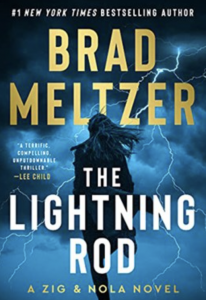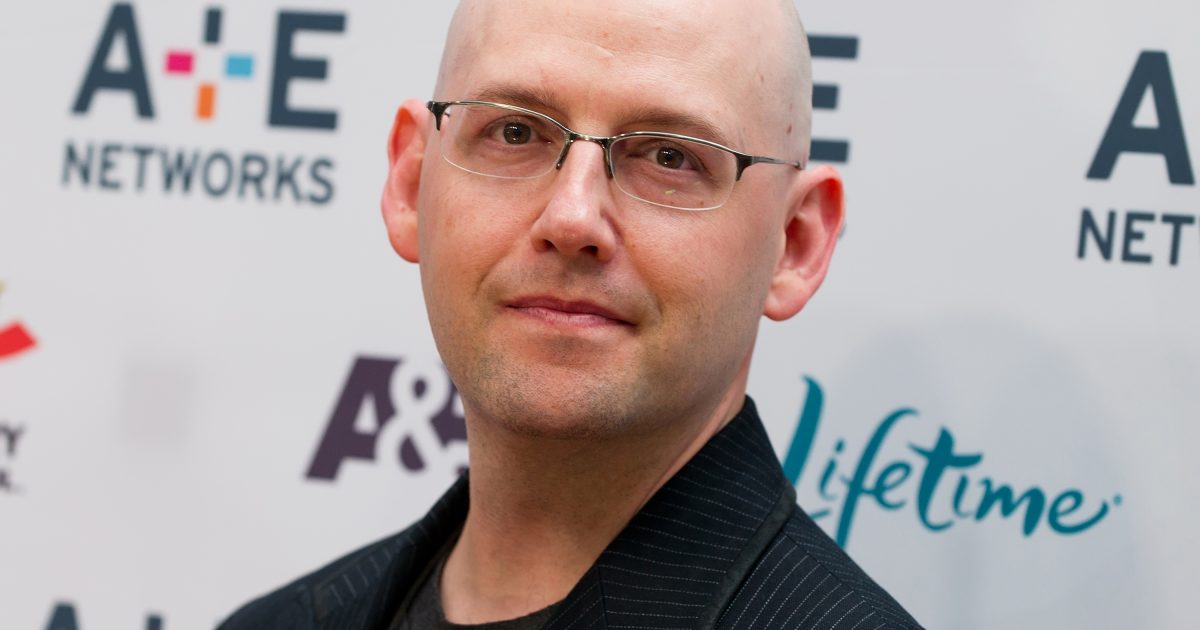Meltzer on Losing His Mom to Breast Cancer
- Best-selling thriller author Brad Meltzer speaks with SurvivorNet in an exclusive interview about his mother’s battle with breast cancer.
- His mother battled triple-negative breast cancer 14 years ago and was treated at Memorial Sloan Kettering Cancer Center in New York City.
- Meltzer encourages people going through grief to recognize that there is hope and joy even after tremendous loss.

Brad Meltzer’s Mom’s Cancer Battle
Meltzer shares that his mom had triple-negative breast cancer 14 years ago. She was diagnosed in her 60s.
He notes how there have been many advancements in breast cancer treatment since the time of her diagnosis, and that her diagnosis was a blow to the family. “[It] was obviously not the diagnosis we were hoping for. I literally turned all my research skills, which I use as a novelist and as a historian, into the world of cancer.”
“I just remember everything I could use, in terms of my research skills, was turned to help my mother with that diagnosis.”
Meltzer says that 14 years ago was “very different than what it is today,” in terms of treatment options.
The author put on his research cap to help his mom through her cancer. “I started with Susan Love,” he says, “who was represented by my same agent, and called her up, who wrote the famous breast cancer book.”
Love introduced Meltzer to “every medical doctor.” He describes, “I remember calling Geraldine Ferraro, may she rest in peace, to get into my mom to see a certain doctor that everyone thought was the doctor to see. I just remember everything I could use, in terms of my research skills, was turned to help my mother with that diagnosis.”
Brad Meltzer’s Mom’s Hospital Experiences
Brad Meltzer’s mom was treated at Memorial Sloan Kettering Cancer Center in New York City. He says that at MSK she received excellent treatment and that she felt most comfortable there. Meltzer’s mom said to him when they arrived at MSK, “I like my doctor here. I want to be here.”
“…The nurses, and the chemo ladies, and the people who sit with you and helped her walk out. Those people are angels.”
Feeling comfortable with your doctor and cancer care team are important. Meltzer adds that while the doctors were great, he especially appreciated all the nurses and the care they gave his mom. The author says, “I loved all the doctors we met, but my God, do I adore the nurses, and the chemo ladies, and the people who sit with you and helped her walk out. Those people are angels.”
Meltzer’s mom made an impact on the people who provided her care, too. He recalls, “I remember I came in after my mom died because I needed to get some files for death records or insurance. I remember going to the office, and everyone heard what happened. One of the nurses said to me, ‘Not everyone was nice like your mother was.'”
He continues, “They regaled me with all these stories of how kind she was, and how she knew everyone’s name, and how when she was going through her chemo, she still wanted to know about everyone’s kids and grandkids around her, of the nurses and the people administering the chemo. I realized when my mom was gone that the truth is what people say behind your back.”
Meltzer says the stories from the nurses at MSK were “a gift to me.”
How Cancer & Grief Impacts His Work
Meltzer’s latest thriller is The Lightning Rod. “When I write my thrillers,” he says, “I started writing much more about characters with dead parents. They were in my novels, it was like my free therapy. I was putting what I was dealing with in the real world into these thrillers.”

While Brad Meltzer writes professionally, many people who aren’t professional artists find that art and creative outlets can help the grieving process.
“My parents deserve to be remembered. They deserve to be thought about every day.”
“I kept asking myself … I kept trying to get over it. I was like, when am I going to get over it?” he says.
“I finally realized that I’m never going to get over it,” says Meltzer. “My parents deserve to be remembered. They deserve to be thought about every day. I truly believe that when you lose someone who touches you at that deep level that they’re part of your soul, that you don’t ever get over it. The only thing you can do is transform. You transform, and you become something new.”
Meltzer says that the main character in The Lightning Rod is someone who works to “help people find that one thing that seems so elusive when someone dies, which is closure.”
“That’s literally what my main character does is help people try to find closure because he himself can’t find it,” Meltzer says. “I don’t know if I’m just projecting or I’m just not even pretending to project. It’s just that’s how I am. But I do think it transformed me.”
Melzer on Coping with Grief
When asked how he coped with grief and what advice he’d give others who are grieving, he says, “In the beginning, so many things undid me. A song would come on the radio, and that old song would just have me in tears. Or I’d see something that … I’d go by Marshalls. My mom’s favorite store, and I would just be taken apart by that.”
Meltzer assures the SurvivorNet community, though, that it gets better, saying, “Then somewhere in there, after a couple of years passed, over time … I couldn’t possibly tell you what that time period is. Anyone who is a survivor, you know, or is a family member of someone who was fighting cancer, your life is a rollercoaster. But eventually, the rollercoaster flattens.”
Meltzer says the little reminders of his parents no longer break him down but make him feel thankful. “Those songs and those sights, they suddenly, instead of becoming something terrible, they become a little reward that is amazing and beautiful. It’s like my mom is back with me again. As opposed to something torturous, it becomes something that I’m thankful for.”
Coping with the loss of a parent is heartbreaking, and the grief process may be helped with the use of formal support systems, like therapy or counseling. Reach out to loved ones if you're suffering. People want to help.
Support groups can also benefit those who are feeling isolated in their feelings of grief. And faith can be a powerful coping mechanism for some.
Meltzer adds that his mom is still as important today as she was when she was alive, saying, “My mother is as important in my life today, and she’s been gone 14 years.”
Understanding Triple-Negative Breast Cancer (TNBC)
In an earlier interview, Dr. Julie Nangia, a medical oncologist at Baylor College of Medicine, outlines what differentiates triple-negative breast cancer from other cancers. "There are different types of breast cancer," she says. "And these are defined by biomarkers. So the three biomarkers are ER, which is the estrogen receptor, PR, progesterone receptor, and HER2, which is a protein."
"Some of these tumors don't have any of the three receptors and we refer to those tumors as triple-negative breast cancers," she explains. "Today we classify triple-negative breast cancers as one of the most aggressive types of breast cancers."
The doctor explains that chemotherapy is typically needed for this cancer. "For someone who is newly diagnosed with triple-negative breast cancer, most of the time they will need chemotherapy," she says.
What is Triple Negative Breast Cancer?
Learn more about SurvivorNet's rigorous medical review process.


